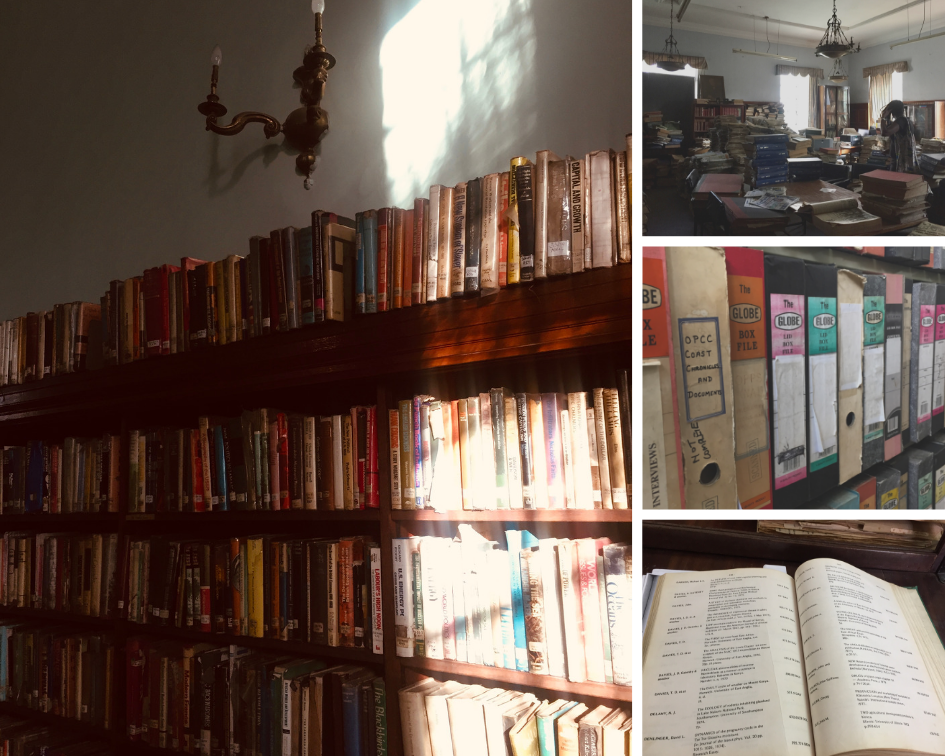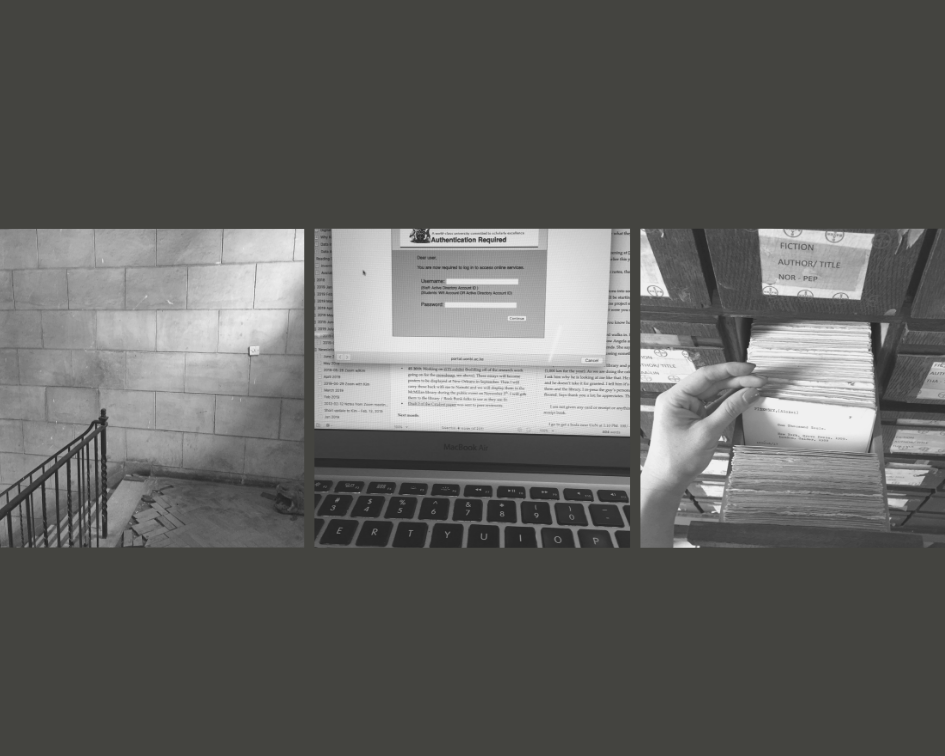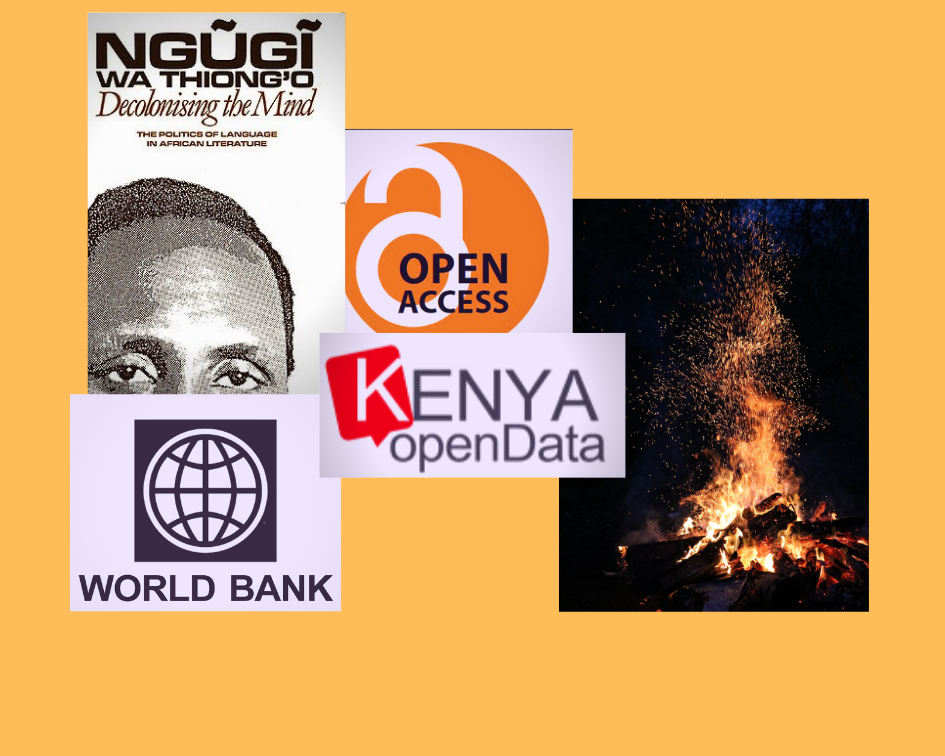
Cite as:
Okune, Angela, Trevas Matathia and Syokau Mutonga. 2019. "Scholarly Memory in Nairobi, Kenya: Care for Sites and Sources." In Innovating STS Digital Exhibit, curated by Aalok Khandekar and Kim Fortun. Society for Social Studies of Science. August. https://stsinfrastructures.org/content/scholarly-memory-nairobi-kenya-care-sites-and-sources/essay
We have taken this year's frame of "innovation" very broadly to think about the technologies, spaces and practices needed to preserve and care for research data. What is particularly innovative about the long-standing practice of archiving primary source materials? We tack between historical materials found in the very places highlighted and the rationale behind the creation of these spaces. Why were archives deemed a necessary "innovation" in the 1960s at the cusp of Kenyan independence? How has their purpose and the care of them shifted over time? What are the implications for "innovations" in contemporary scholarly communications and the circulation of knowledges today?
This exhibit focused attention on public sites and institutions tasked to care for primary ethnographic materials, what I call elsewhere qualitative research data. Given the limited scope and time available, in this iteration of the exhibit, we were not able to follow the people who maintain as well as those who use the materials. The voices foregrounded throughout the exhibit are those which were prominant in already existing online materials about these sites. We were also not focused on comprehensively documenting what is contained within the collections but rather to give a snapshot of the diversity of holdings.
All Innovating STS exhibits are oriented by nine shared questions in order to generate comparative insight. These are:
ARTICULATION: What STS innovations (of theory, methodology, pedagogy...Read more
Furthering its theme, Innovations, Interruptions, Regenerations , the 2019 annual 4S meeting in New Orleans will include a special exhibit, Innovating STS , that showcases innovations ...Read more
Leveraging diverse examples from Nairobi, this exhibit frames archives and libraries as possible "innovations" in STS practice and engagements. Specific cases have articulated how their libraries and archives are innovating/have innovated for example, beyond established educational systems; despite lack of investment by government and popular narratives; and past their official mandate. We keep "innovation" in scare quote to distinguish our application of the term outside of its common usage as part of the world of "Silicon Savannah" and posit that while libraries and archives are less frequently thought about together with terms like "innovation," they nonetheless hold important lessons to think about the organizing and maintenance of public knowledge commons.
A Chief Archivist of the Kenya National Archives, N.W. Fedha (1972) viewed the National Archives as the store of all the history of this country without which the country could not preserve its history. Members of the Ukombozi Library leadership team, Shiraz Durrani and Kimani Waweru, described the need for the library as providing inspiring materials for young people in their quest for social justice who are usually disappointed by the lack of relevant content held in public and academic libraries deprived of funding by government policies and surviving mostly on donations from overseas. A co-founder of Book Bunk, the organization working on restoring McMillan Library highlighted the important role that libraries (should) play in consciousness raising and intellectual formation of Kenyans.
Frameworks such as anti-imperialism, pan-Africanism, decolonization and post-colonialism are leveraged to situate, reflect, and critique the role and politics of libraries and archives in Kenya and on the continent more broadly. Users have articulated the affective relationship they have towards the physical spaces that house these research materials through a wide range of senses, including smell.

A librarian at the British Institute in Eastern Africa (BIEA), Jimmy Maranga explained the ties or lack thereof between various spaces of information and data maintenance in Kenya:
…the way things work here--not just here, but everywhere--it's kind of like there are materials, but you have to … have some ingenuity in trying to trace them. There’s no network connecting this archive and this archive and this [so] you will find there is data, there is information, but …you have to be creative and maybe intuitive in how you look for things. …It’s not like there's no data, or it's super chaotic…[but] you have …to follow your intuition.
The director of the Kenya National Archives has underlined the importance of the physical space itself in enabling the preservation of the material objects.
Members of the leadership team at Ukombozi Library describe how maintaining independence from corporate interests is an important infrastructural decision to enable them to sustain their anti-imperialist outlook. While explicitly deciding not to be part of the dominant corporate scholarly publishing infrastructure may result in increased financial pressures, to them it was an important decision to sustain them in ways outside of the financial.
Highlighting the wide and diverse range of archives and libraries throughout the city, Tayiana Chao of African Digital Heritage suggests researchers explore the rich but lesser known archives of parastatal organizations including Kenya Railways, Kenya Posta, and Kenya Broadcasting Corporation, among others.
Libraries and archives are seen as key mechanisms through which communities can and should be engaging with scholarly knowledge beyond the academy. One of Book Bunk's co-founders explains:
The goal is to increase the circulation of stories in the city,” said Koinange. “Libraries are where stories live.
However, several factors continue to inhibit their full potential including the forms, formats and languages of the materials.
AO: This block quote reposted from the conclusion of Isaacman et al. (2005) asks how the archive c/should become viewed as a site not of authority, but of democratic debate and reconfiguration...Read more
AO: Waterton (2010) argues that given the growing range of experimentations with digital archives, STS scholars and

In the years prior to national independence, government documents which should have formed part of the national archive were destroyed - with multiple sources confirming the intentional destruction of such documents in large fires on the eve of the country's independence. Contemporary news continues to report on documents gone "missing" from the British Archives. Suspicion about opening up research data and developing digital African archives are set against this history of colonial looting of African artifacts. Who benefits from digital archives and who is most able to access them? Who determines what should be archived in the first place? How should enduring and unequal colonial relationships be navigated in the post-colonial period? The longstanding negative effects of the Bretton Woods neoliberal policies on reducing the capacities of libraries and archives as well as the continued unevenness of research budgets between the global North and global South are also important aspects for contextualizing our understanding of the sites that care for research data sources in Kenya.